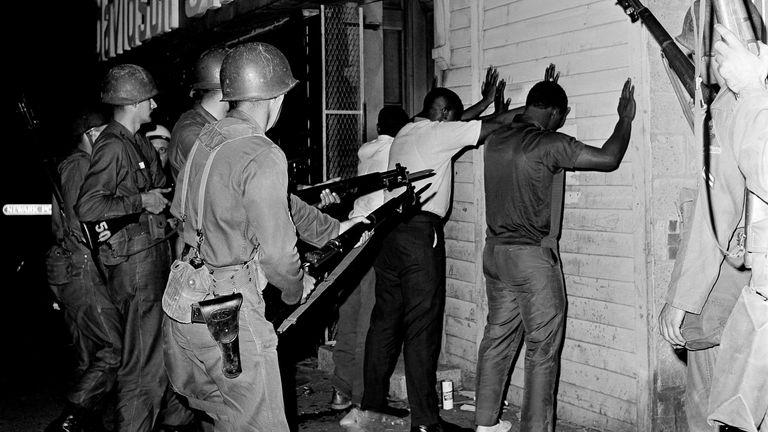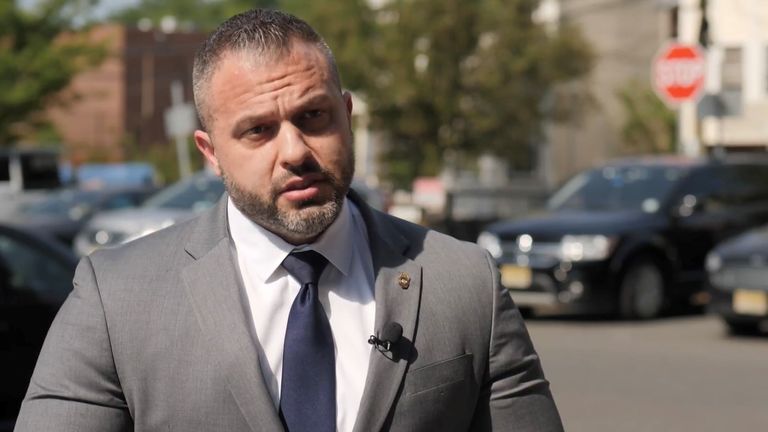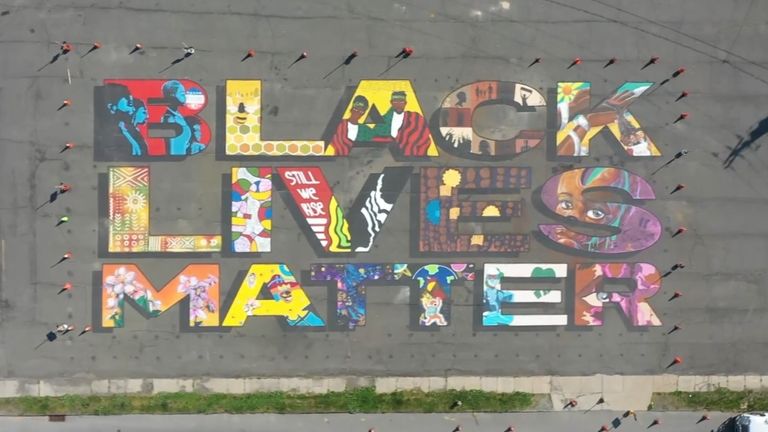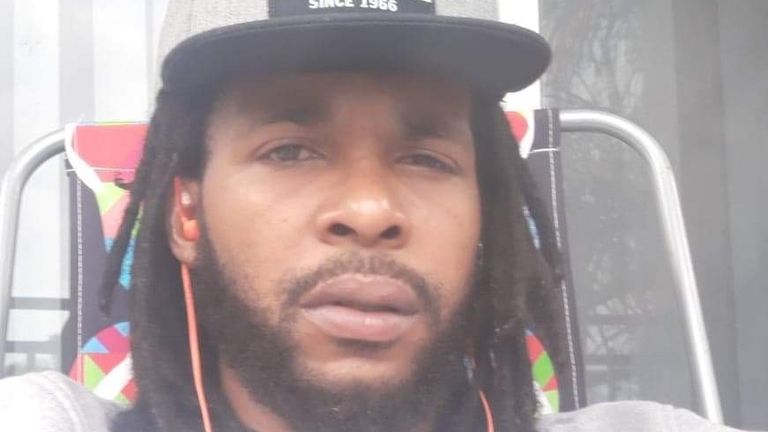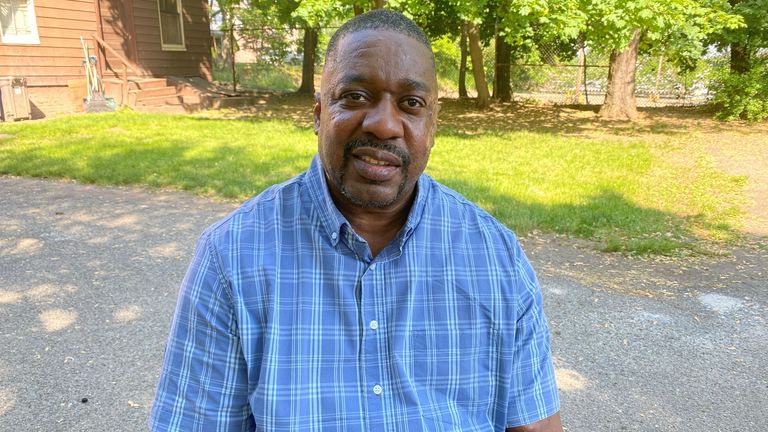In a local community hall in Newark, New Jersey, around 20 elderly people gather multiple times a week to play bingo.
The atmosphere is relaxed and fun. Not one you would necessarily associate with frontline policing in America.
But that’s what this is. The event’s being run by about half a dozen burley police officers – the man in charge a 25-year veteran.
Policing has a soft new façade in this city. “Bingo with a cop” is just one of a swathe of initiatives designed to build bridges with the community. “Coffee with a cop” is another.
The aim is to foster more trust in the police, a tricky nut to crack in this majority black city.
The history of policing in Newark is potted and complex. This is a city that saw race riots in the 60s after white police beat a black taxi driver. The violence left 26 people dead and hundreds more injured.
Just seven years ago, the police department was judged so corrupt and so violent that the federal government intervened. In 2016, it enforced what’s called a Consent Decree – a deal with the Department for Justice to sign up to sweeping reforms.
Community outreach programmes are just one part of the changes made. Others strike to the heart of how the Newark police now operate.
There’s been an overhaul of use-of-force policies, new training, harder lines against problem officers, and anti-bias initiatives. Some $7.5m (£5.3m) has also been reallocated from the police budget to fund programmes designed to prevent violence.
The police say it’s working.
Officers here did not fire a single shot In 2020 – a remarkable feat for an American city.
“Instead of being met with anger,” says Detective Robert Moore, between calling out the bingo numbers, “we’re welcome. That’s the difference.”
They’re clearly proud of their record here and hope other police departments might follow their lead.
“When we first started implementing body cameras and new use of force policies and trainings, the reaction was literally from some of the senior officers here that I was personally going to get a cop killed in the city,” explains Brian O’Hara, public safety director within Newark Police.
“And today, now that’s the opposite.”
But despite the success, familiar problems still persist. Greater data transparency from the force means it’s easier to assess who is being stopped and subjected to the force.
Black people are still disproportionately represented.
“I don’t believe that it’s ever possible to do enough,” says Mr O’Hara.
“It’s something I worry about every day. I think regardless of the processes that you have, the training that you have, the accountability systems that you have in place, it’s always possible for any human being to make a bad decision.”
There are plenty of communities here that still struggle to trust the police. Despite being welcoming of reform, the scars left by decades of injustice still run very deep.
And more recent events add fuel to the feeling that not enough changed.
Police in Newark may not have shot anyone in 2020, but that came to an abrupt end on 1 January 2021 when a plainclothes officer shot black man Carl Dorsey III.
Sitting in his backyard, his stepfather Abdul-Malik Muhammad remembers a man who adored his children and who always put his family first.
“I’m very angry,” he says.
“Carl should have had the right to come home when he left that night. He should have had the right to come back home to his family, the same way that officer went back home to his family.”
He says despite reforms, the police still have a lot of work to do to rebuild faith.
“Growing up as a black man in America, you can’t trust the police,” he says. “You have to, you know, maybe have some faith in them that they’re going to do the right thing and their job is to protect and serve you. But trust, no, I can’t say that.”
Many activists argue that that trust cannot be totally regained until police face the same level of accountability that the public do for their actions.
Rowing back so-called qualified immunity, that protects police from prosecution in some cases, was part of new police reform legislation the Biden administration is fighting to pass, but it still faces fierce resistance.
Larry Hamm is a long time activist and has been protesting police brutality in Newark for five decades.
“It’s not just the police, it’s the whole damn system that needs to change,” he says.
“You’re not going to see an appreciable decline in police brutality until the police understand that they’re going to be prosecuted for their crimes just like the average citizen.”
He says he originally had doubts Derek Chauvin would be found guilty of the murder of George Floyd, but in all his years working for change, he’s never seen a swell of public support for police reform on the scale America is seeing now.
Subscribe to the Daily podcast on Apple Podcasts, Google Podcasts, Spotify, Spreaker
The hope is that appetite can be harnessed, that what this country has been through in the last year will result in meaningful change.
Newark may be a model for some, but reform of how some people perceive the police will take much longer and be much harder to achieve.


